|
This past year has been turbulent to say the least; with the number of ups and downs, I still can hardly tell whether I’m standing on my head or on my feet. However, one of the most notable ‘ups’ was that I ran a successful Kickstarter. Then I ran another one. And then one more! In fact, in the past ten months I ran three successful Kickstarter campaigns and collectively raised over $35 000 USD for an Old Norse phrasebook, a Viking-themed card game, and an anthology of historical fiction. This does not make me a Kickstarter expert by any stretch of the imagination, but I have learned a few things and I hope to pass on a bit of insider knowledge here for crowd-funding hopefuls considering this route to publication. "[In] the past ten months I ran three successful Kickstarter campaigns I have an idea. Should I run a Kickstarter? If any creator was to ask me this question, I would ask them three questions in return:
If you answered yes to these three questions then I think your idea is probably viable for a Kickstarter campaign. (Note: ‘viable’ does not guarantee success.) If you answered no to any one of these three questions I would strongly discourage you from pursuing funding through Kickstarter. Instead, I would suggest that you pitch your idea to publishers who can handle the items above while you focus solely on the creative aspect of the project. "If you answered yes to these three questions then I think your idea When should I start working on the Kickstarter? I think there is a misunderstanding of timelines when it comes to Kickstarters for new creators. Way back in the day, the idea of pitching a project, getting it fully funded, then working on it for six months to two years while backers wait patiently may have been an option. These days, you want to have a fully finished product (be that a game, book, album, etc.) as you will be competing with very polished products for attention and for funds. My suggestion would be to complete the ‘idea to reality’ stage first, make sure it really is as awesome as you were hoping it to be, and then begin to prepare for a Kickstarter campaign launch. " My suggestion would be to complete the ‘idea to reality’ stage first, make sure it really is as awesome as you were hoping it to be, and then begin to prepare for a Kickstarter campaign launch." I would budget about 5-15 hours a week for pre-campaign work (designing graphics, recording the video, networking, securing promotions, getting feature spots on podcasts or in relevant publications, developing publicity materials, recruiting followers on the pre-launch page, etc.) for about three months before the campaign and then 15-25 hours per week during the campaign. Any work you complete before the campaign will be very much appreciated by your future self during the mid-campaign madness. I highly suggest working with a partner (or a team) on this as that is a lot for one person to handle while remaining somewhat sane. What funding goal should I set for my Kickstarter? This is highly dependent on what the product is, but in general you obviously want to cover the cost of printing or production. Be sure to get a quote for this before you set your funding goal and do not just ballpark your costs. If you’ve never worked with a printer or a manufacturer before then do your homework early in the planning stages. I had friends who funded their board game on Kickstarter then received copies from the manufacturer overseas, 30% of which were defective. They were on the hook to cover thousands of dollars of re-printed games out of pocket; it was either that, or lose the significant following they had built upon Kickstarter over several successful projects. Additional expenses, which can be significant, include Kickstarter’s 5% fee, warehousing and distribution, and any costs related to fulfillment management services. Typically it is understood that backers will be charged shipping (be very careful if you plan on including shipping in the backer price) and most creators, even small ones, will use a fulfillment manager such as CrowdOx to help with post-campaign delivery. I would highly recommend that another buffer of at least 5% be added to the funding goal to cover any unforeseen expenses related to the campaign. "I would highly recommend that another buffer of at least 5% be added to the funding goal to cover any unforeseen expenses related to the campaign." Of course, there is also the whole issue of your being paid for the creative work you have done. I would suggest using the Kickstarter to fund the production costs or the print run then pay yourself through post-campaign sales. For example, if you fund a print run of 2000 copies of a book and you have 800 backers, then there are 1200 copies that can be sold post-campaign. Not everyone would agree with me on this, but consider the fact that you are paying Kickstarter 5% of your ‘creator’s fee’ if you raise those funds through the platform. I just launched my Kickstarter! Time to sit back and let the pledges roll in? (Spoiler Alert: The answer is no.) No amount of pre-campaign preparation can prepare you for the rush, the thrill, and the terror of your campaign launching on Kickstarter. You are baring your soul, your dreams, and your ambitions to a nebulous universe of interconnected intelligent entities surfing across the vast expanse of the web. When the campaign begins, it is time to start pushing harder than ever to reach new audiences, network with influential people around the topic of your project, and follow up with media features you set up during the pre-campaign. During my third campaign we were fortunate to be selected as a ‘Project We Love’ by Kickstarter. Our campaign was featured on the ‘Project We Love’ page and we were given access to a promotional badge which helped us stand out. Only 8-9% of all Kickstarter projects are selected to be in this category so it is a significant achievement; however, there is no process to apply for this status as projects are selected using a secret process that happens behind closed doors. "During my third campaign we were fortunate to be selected as a ‘Project We Love’ However, if you look at the current ‘Projects We Love’ page you can identify some themes in terms of which projects are getting selected. While not every project might fit into this category, consider tweaking your campaign page to try and catch the eye of a Kickstarter administrator. Note that your campaign might be live for several days before you receive notice that your project has been chosen as a ‘Project We Love’ and such a designation does not guarantee success. My Kickstarter is live and it is not doing very well. Should I pay for advertising? This is, unfortunately, an all too common experience, especially for first time creators. Overall, only 38% of projects on Kickstarter reach their funding goal by the end of the campaign. Creators need to be prepared for the worst-case scenario but should not sit back once the campaign begins. The energy of the campaign, especially in the first few days, will be key to either its success or its failure. It is very common to have a mid-campaign plateau and that is nothing to panic about. The spike of pledges in the first few days and the rush of backers who had been following the project or holding back in the final hours are like riding an extreme roller-coaster, but this middle section can feel like trudging through a desert of despair. At this stage, if the project has not yet funded many may feel immense pressure to pay for advertising in a desperate attempt to reach more people. "The spike of pledges in the first few days and the rush of backers who had been following the project or holding back in the final hours are like riding an extreme roller-coaster, but this middle section can feel like trudging through a desert of despair." I would caution against paid advertising in general. If you have a background in SEO analytics or marketing then maybe you can turn this to your advantage. However, paid advertising will never, in my opinion, be able to match personal recommendations. Having an influential podcaster, author, or academic personally share your project and encourage people to back it is more authentic than paid advertising and will attract the kind of loyalty that these projects need to succeed. People need to believe in the project like you do, and that sense of communal excitement is difficult to generate without personal recommendations. Besides, there are plenty of people ready to take your money with baseless promises of Kickstarter success, but once they are paid your money is gone, gone, gone. My Kickstarter is funded! Now what? Ah! You’ve reached that enviable state for which so many have striven. However, there is still much work to be done in finalizing the production of your campaign, fulfilling orders, and staying in touch with backers. One thing I was surprised to learn is that many of the pledges bounce, sometimes upwards of 10% of all pledges; Kickstarter has no way of securing these funds if the payment information is not current and backers do not update their details before the funds go through. This is not too much of an issue for campaigns that significantly overfund, but if you barely make it over the line at, say, 102% funded on a $9000 goal, you may end up with only 95% funding once all the funds come through. This is yet another good reason to build in a bit of buffer in your original funding goal. "One thing I was surprised to learn is that many of the pledges bounce, Last, but not least, if you begin creating projects through Kickstarter you are likely to continue with future campaigns that expand on your series, universe, or game. While answering mountains of backer questions, wrestling printers to meet your promised deadlines, and interacting on social media, remember that these amazing people who backed your project may be interested in backing future projects, provided you’ve shown yourself to be reliable and professional. Keep backers up to date and inform them of delays in fulfillment or any other items relevant to the campaign. "...remember that these amazing people who backed your project may be interested in backing future projects, provided you’ve shown yourself to be reliable and professional." All of this is really just scratching the surface of the wild and wonderful world of crowdfunding; if you are interested in learning more I encourage you to check out the extensive collection of posts by Stonemaier Games or to send me an email through my contact form for more specifics on any of the topics above. Keep making the world a little bit more awesome with everything you create! For more from Josh, explore the sub-category 'Articles' on this blog or following him on Twitter!
0 Comments
Welcome Danika! Thanks for taking some time to chat about writing. First, a few quick-fire questions: Snow or sand? Big dogs or small dogs? And which of your favorite foods has been difficult or impossible to get since COVID started? Snow or Sand? Snow. Big dogs or small dogs? Big dogs. *whispers* …or small dogs. SORRY! I can’t choose on that one. As for the food that I miss that I haven’t been able to get since lockdown, it would have to be movie theatre popcorn. (And movies, to be honest!) "Big dogs or small dogs? Big dogs. *whispers* …or small dogs. SORRY! I can’t choose on that one." Many writers are unsure of the next steps once they have completed their first novel. They might wonder whether to query agents, reach out to smaller publishers, or look into options for self-publishing. What was your journey of becoming an author like and is there any advice you have for writers who are just at the beginning of their careers? My journey is pretty unique to me… which makes it completely NOT unique for a writer. That’s something I’d remind every young author. It doesn’t matter how much you plan it out, the journey to publication is going to be different for everyone. My second piece of advice is: finished is better than perfect. As for my own journey, I started out with a book that I wanted to publish. I queried for months, and although I got plenty of good feedback from agents who looked at it, I didn’t have anyone willing to sign. I wrote more books… time passed. And when I felt that I had a manuscript that was even better than my first, I queried again. This time I had a number of agents reach out, and I ultimately signed with my first agent: Morty Mint of Mint Literary here in Canada. "It doesn’t matter how much you plan it out, the journey to publication is going to be different for everyone. My second piece of advice is: finished is better than perfect." We had a really good run together for about five years and Morty sold a number of my titles. One interesting fact is that while Morty was putting my thriller Edge of Wild (Stonehouse, 2016) out on sub, I sent a completely different novel, All the Feels (Macmillan, 2016), in the young adult genre, into an open submission… and it was selected for publication by Macmillan. Suddenly I had two books, in two completely different genres, and they were BOTH getting published the same year. "One interesting fact is that while Morty was putting my thriller Edge of Wild (Stonehouse, 2016) out on sub, I sent a completely different novel, All the Feels (Macmillan, 2016), in the young adult genre, into an open submission… and it was selected for publication by Macmillan." In the time since 2016, Morty has retired and I signed with my current agent, Moe Ferrara of BookEnds Literary. I have several more YA and thrillers out, and I’ve had many successes along the way. One thing I was particularly proud of was having Switchback selected as one of the “Best YA Books of 2019” by the Canadian Children's Book Centre. See? Different paths… different journeys… all with the same end result: publication. You have been able to find success with titles in both YA and Adult Mystery. A lot of ‘new’ writer advice suggests finding one genre and sticking with it. How were you able to navigate writing in two very different styles of books while maintaining your brand and identity as an author? For me, the book tells me what genre it is, and I just follow the characters along, scribbling as fast as I can. Once I hit flow, I find it quite easy to stay in the right “voice”. My thrillers are suspenseful and highly descriptive. My YA are edited down to the bone, with dialogue taking a much bigger role. I don’t consciously think about these differences as I write. They just naturally occur. As to “sticking to one genre” I happen to like exploring and writing in multiple genres—in fact, I just put a science fiction novel out on sub—so I’ve never really tried to limit myself. This works for me, but I could see it being a challenge for some authors. Again, I think whatever works… works. My brand is a Canadian author who happens to write multiple genres. It does require a little bit of tone-shifting during promotions for books, since my thrillers are quite dark. Strangely though, I’ve got readers who follow me quite avidly and read books by me in both genres. That always feels good! "For me, the book tells me what genre it is, and I just follow the characters along, scribbling as fast as I can. Once I hit flow, I find it quite easy to stay in the right 'voice'." Perhaps the most grueling aspects of being a writer is just that: writing! As an author who has finished and published more than a half-dozen books, can you share a bit about what drives you? Are their routines that help you stay productive? Is it a natural part of you or did you have to train yourself into that level of productivity? Writing gives me joy, so I find it quite easy to write and I’ll often lose track of time while writing. When I’m editing, however, I have to fight for every word. In those times, I set an alarm early and write before anyone else in my house is awake. I make myself complete a thousand words a day. It’s not actually that much, but it adds up quickly. Yes, part of this is training, but it comes down to the fact that I look at writing as a job. You have to get the words down and the only way to do it is to sit down and WRITE. I make my deadlines—all of them—and I remind myself that you can always edit garbage, but not blank pages. "You have to get the words down and the only way to do it is to sit down and WRITE. I make my deadlines—all of them—and I remind myself that you can always edit garbage, but not blank pages." Many of your books, including All the Feels, Internet Famous and Ctrl Z, explore how our lives online often intersect, overlap, and collide with our lives in the physical world. As a writer, what interests or concerns you most about the newer technologies that are emerging today? I am mostly quite technology-positive (if that’s even a word :), though I am quite careful about where I go online and what access I provide to strangers. Of course I have very serious concerns about things like the dark net and piracy and identity theft, but in a broader sense, my biggest concern is about how everyone interacts. To explain, when people wear a mask as an anonymous poster, they behave more horribly than they ever would be in person. You see it all the time with people being harassed, doxed and threatened. THAT lack of empathy, to me, is one of the biggest dangers. We have both spent time living near and exploring the Canadian Rockies. It seems that their impression has also made its way into our fiction! What other aspects of being a Canadian have influenced your work and what unique contributions do you think Canadian authors bring to the international writing scene? Since Macmillan is based in the US, I have a list of “Canadianisms” that I carefully and studiously remove from my early drafts. Overall, however, I simply assume that my perspective as a Canadian is intrinsic to my work. Many of my novels take place in Waterton Park, AB, where I grew up, and the whole sense of place—the mountains and the forests—is a character unto itself. My particular perspective, as someone who loves and wants to preserve the untouched areas of Canada, certainly filters into what I write. In a bigger sense, I think that Canadian writers as a whole have brought the Canadian perspective to the world. I’m proud to be part of that tradition. Can you give us a sneak peek of what your next major project will be? Any hints or perhaps a little snippet to get readers excited? Sure! I’m currently writing a ghost story. It has no title (as of yet), and the ghost rarely listens to my direction, but I’m having a blast writing him. Here’s a snippet: Too late, the dial tone buzzed in his ear, and he swore, setting the handset back into the cradle. There was no message; Grant didn’t have a machine for the house line. Whoever it was would have to call back. He hoped it was Caleb. The two of them needed to talk. There were chores to be done, and one person alone couldn’t do them. Grant winced. As angry as he was, he was going to have to come halfway on this, or there’d be no way for the farm to make it to spring. There was no money for a hired farmhand. It was him and Caleb working together or nothing. No use worrying about it. Just need to-- A faint creaking noise, like someone had opened a bedroom door on the second floor, interrupted his thoughts and Grant’s eyes widened. The house was empty… wasn’t it? “Caleb…?” Wind howled around the eaves in reply, while upstairs whatever it was had gone silent. The kitchen where Grant stood was cloaked in darkness, the only light sifting through the windows from the porchlight outside the window. Everything in the room shone blue and purple, black shadows stretching ominously into corners and up walls. An icy finger ran the length of Grant’s spine. “Just the wind,” he muttered uneasily, his voice loud in the quiet room. “Nothing to worry ab—” Another sound, like a scuffling footfall, interrupted. Grant’s chin bobbed and he looked up. A single floor divided him from Logan’s empty bedroom. It was the same room the boy had occupied from a week after his birth until the previous summer (and the awful day that so often visited Grant’s nightmares.) The bed and dresser, pictures and coverlet were the same as they’d been many months before, his absence preserved like a leaf between two pages of a book. Grant swallowed hard. I’m tired tonight. Done too much work. Ain’t slept in days. Another footfall echoed. Grant stumbled backwards, his legs banging against the cupboard in his haste. That sound had come from Logan’s room. No question. Between him and whatever had made the sound was a thin layer of plaster, wooden joists, floorboards, then… what? Shaking, Grant took a single step away from the window. The whole house was dark, but it no longer felt empty. Wind rose again and something creaked in the upper floor. “Caleb,” he called tremulously, “is that you up there?” There was no answer. The hair rose on his arms as Grant forced himself into the darkness. The faint light from the window didn’t fill this part of the house and the kitchen light switch seemed impossibly far away. Heart pounding, he forced his limbs to comply. The sound had come from his late son’s room. He was almost entirely certain of that, but that could mean anything. Couldn’t it? He reached the far wall and flicked on the light. A warm golden glow filled the kitchen and he let out a slow breath. It felt normal again. Fine even. Dirty dishes from the night before filled the sink, empty beer bottles lining the counter. Grant grimaced. Nothing at all. Freaking myself out over nothi-- A crisp footfall snapped directly overhead. Grant’s heart jumped to his throat, his chest heaving with barely constrained panic. What if there’s a prowler in the house? his mind demanded, but that made no sense. Unless… unless… The floor above his head creaked again—heel, toe, heel toe—and Grant’s stomach dropped. What if it’s Logan’s ghost? his mind whispered. What if he’s here… NOW? Last, but not least, where can readers find your books and keep up to date on your latest publications? My young adult titles are available almost everywhere books are sold. My thrillers are for the more discerning, so they’re available in some big box stores, but much more often in smaller indie bookstores. ALL of them can be found online! And if you’re ordering online, I’d encourage you to consider an independent bookstore rather than a massive chain. Indies really are the lifeblood of publishing. Details and information about upcoming releases is available on my website and on ALL of my social media accounts! Thanks for interviewing me, Josh! It was great to chat.
After he died we just got all the Good Guys teaming up like the freaking Avengers. Blech. (No hate on the actual Avengers, though, to be clear). As far as actual devastation goes, though, I have to say Brienne of Tarth in the books. IT WAS A FAKE OUT, I know that now. But I genuinely cried when I read that passage. She was my favorite in the books and in the show, and I was so upset when I thought GRRM killed her off. So, my current only-child cat’s name is Thorin Oakenshield (after the Tolkien character, of course). If I got a second cat I would name her Tali’Zorah, after everyone’s favorite quarian from Mass Effect! If my husband gets his way Tali will end up being a puppy, which sounds pretty great to me too! "If I got a second cat I would name her Tali’Zorah, after everyone’s favorite quarian from Mass Effect!" I recently read a blog post you wrote about the required (and/or forcibly acquired) virtue of patience as a writer. As you shared in your post, you are not a particularly patient person, nor am I. Yet we somehow managed to survive the publication process! What are some tips for writers in the ‘weary middle’ of this grueling journey? Oof, let me just say, writers, if you’re in that ‘weary middle’ right now, I feel you. Though, let’s be honest, there are about fifteen ‘weary middles’ throughout the writing and publishing process. You wait for feedback from beta readers, responses from agents you’ve queried, responses from editors you’ve been subbed to, the list goes on. My best tip is always to keep busy. Sink yourself into something new. For me it’s always a new writing project - something else I can fall in love with and let myself get distracted by while I’m waiting for [insert part of the process here]. "Oof, let me just say, writers, if you’re in that ‘weary middle’ right now, I feel you. Though, let’s be honest, But there’s the other half of patience too - the half where you’re being patient with yourself. Brainstorming/Drafting/Editing a novel takes time - weeks and months and years of it. So I think it’s also important to have hobbies outside of writing to help reset your brain a little bit. For me it’s fitness - kickboxing, weightlifting, all that good stuff. Maybe for you it’s the same, or maybe it’s running! Or knitting! Or puzzles! Whatever it is, my advice is to find something else you can sink yourself into aside from writing. "But there’s the other half of patience too - the half where you’re being patient with yourself. Brainstorming/Drafting/Editing a novel takes time - weeks and months and years of it." Time management can be a huge issue for writers. I constantly hear newer writers complain that they would write if they could only find the time. How do you manage to balance your career, your personal life, and writing schedule?
I am super lucky to have a really supportive husband who viewed my writing as a second job long before I even got an agent, which makes things easier. I also don’t have any kids, which I know makes things way easier. So, to sum up, no one has the time, everyone has to make the time. But the great part is, if you write for eight hours every day, sure, you will end up with a book. But if you only write for one hour? Twenty minutes? You can still end up with a book if you keep at it long enough! Write however much you can fit in without going absolutely crazy or shirking other important responsibilities, and don’t let other people bully you into thinking you’re “not a real writer” if you can’t squeeze in some massive, arbitrary word count every single day. Fantasy, as a genre, has historically struggled with diversity of representation. How does diversity play into your character cast and what advice might you give to writers who struggle with implementing this in a meaningful way? This is such an important question. I’ll start by saying I think this ties in with the world-building question below. Part of building a vivid and realistic world is populating it with vivid and realistic people. If all your fictional people look and sound the same, I think it’s safe to say you’re not doing that. The main cast of Among Thieves is made up of characters from every corner of my fictional world. "Part of building a vivid and realistic world is populating it with vivid and realistic people. If all your fictional people look and sound the same, I think it’s safe to say you’re not doing that." My biggest advice to other writers, though, would be to make sure you’re reading broadly in the genre. In other words, if all the fantasy authors you’re reading look a lot like me… you need to expand your selection. There are so many awesome fantasy authors of color out there! N.K. Jemisin, Sabaa Tahir, Tomi Adeyemi, R.F. Kuang, I could go on naming all day. I also think it is important to remember to make sure you're telling a story that's yours to tell. Ask yourself if you’re really the right person to be writing the story you’re thinking of writing. Lastly, make sure you seek criticism on your work early and often to make sure the representation present in your story is not harmful. Your first novel, Among Thieves, is set to be released in 2021 by Saga Press. It takes place in the Five kingdoms of Thamorr where Ryia Cautella is deftly navigating the criminal underworld of the port city of Carrowick. What inspired this story and what kinds of feelings are you hoping to awaken in readers?
Not to give too much away, but Among Thieves involves a high-stakes heist. I personally love a good heist in any genre. What tips do you have for building the mystery and suspense around a heist without letting it detract from the overall narrative? Let me tell you, it’s a tough balance, haha. You want to give enough info that the reader can follow what is happening without giving away all of the fun. The heist elements in Thieves went through about… ten(?) full rewrites to try to get that balance right. And god, I hope I got it in the end! My best tip for any story that has several complicated webs woven together (like a heist) is to outline. For Thieves I had a giant Excel spreadsheet with tons of rows and columns for all my plots and subplots, planning out every aspect of the heist. That meant having solid plans for how each individual character wanted each step of the heist to go so I could make sure their motivations and actions would be clearly blocked out and fit together with each major plot point. Then, of course, I made sure to have a solid plan for how things actually turn out. "For Thieves I had a giant Excel spreadsheet with tons of rows and columns for all my plots and subplots, Moral of the story, the most important part of building mystery is making sure you know all the secrets yourself. That way you can pick and choose which parts of the puzzle to reveal when. I don’t let any Fantasy writer get through a Q&A with me without talking about world-building. Talk us through your world-building process for the book. What were its evolutionary stages? How did it evolve? What was the greatest challenge you had and how was it resolved?
Where on the map is this particular kingdom located? What are some of the customs here? What sport or game is most popular? What kind of foods do they prepare? Holidays, religions, rulers, kingdoms they’re allied with - all of these things are crucial. Even if the details never make it into the pages of the actual book, you can’t make a world feel real to a reader if it doesn’t feel real to you. "Even if the details never make it into the pages of the actual book, For the world of Thamorr (the world in which Among Thieves is set) I actually had done a good portion of the world-building before I even started this particular story idea. The basis of the magic system and a good part of the geography actually comes from an old, dead project of mine. I’m a big fan of cannibalizing old projects for parts. The plot of that old story was not workable, but there were parts of this world that I still loved, so I stole them and built them up to ultimately create the world of Thamorr! The biggest struggle for me was deciding which pieces actually appear on the page and which don’t. I always want to put too much in the MS, which can get info-dumpy. Then I usually reel it back too much in my early edits and beta readers have no idea what is happening. Finding that balance is always a challenge for me. "The biggest struggle for me was deciding which pieces actually appear on the page and which don’t." Where can readers find more information about the release of Among Thieves and about your future works? Among Thieves is scheduled for release in early 2021, but does not have an official release date yet! I will keep everyone posted about Thieves and any future projects on my website, on my Facebook page, or my Twitter account. Also, don't forget to add Among Thieves to your Goodreads!
And amplify a sense by a factor of ten...hmmmm. I would say sight because my vision suuucks, so amplifying it by a factor of ten would probably just about give me normal vision, yay! In all seriousness, yes, I’d say sight. I feel like all the other senses being amplified would be really rough in different ways. I love both Sci-Fi and Fantasy in all their forms. However, I sometimes wonder why they are grouped together as, for me, they seem distinct in many ways. As a writer of sci-fi and fantasy yourself, how do you distinguish the two genres? Can there be any crossover? Should they be considered separately or are they just two ends of the same spectrum? That’s a really great point, and it’s a pretty big part of my concentration. For my major, I chose to study The Concept of Otherness in Speculative Fiction, and one of the things I talked about a lot with my adviser was the use of the term “speculative fiction” instead of “science fiction” or “fantasy.” For me, speculative fiction means anything that lets the writer make observations about the human condition, society, technology, or really anything, without setting the story in our own world. I would say that sci-fi and fantasy have always been grouped together because they take issues that exist in the here and now and comment on them through creating these other worlds, whether those worlds involve magic and whimsy or tech and innovation. For that reason, I see them as two ends of the same spectrum working towards a similar goal. And as for whether there can be any crossover, my WIP merges magic and technology because I love both genres so much. Whether that crossover is effective is up for debate, but I enjoy it and always look out for it to read! "I chose to study The Concept of Otherness in Speculative Fiction, and one of the things I talked about a lot with my adviser was the use of the term 'speculative fiction' instead of 'science fiction' or 'fantasy.' " You host the online journal Satyr Central which posts “anything soulful and non-conformist”; I personally find this focus so refreshing as almost every publication I have encountered is looking for something so specific that it seems that all but a dozen people on earth are disqualified from submitting. What have been some of the highlights of hosting Satyr Central? Thank you so much! That means a lot to me. And shoutout to one of our editors, “Jon the Semite” for coming up with that little blurb on our About page. I think the biggest highlight of hosting Satyr Central is knowing that I can post some really weird stuff and not worry about “Oh, does this meet guidelines? Oh, is this too weird to publish?” I’ve accepted some great submissions where the authors told me when they submitted that they weren’t sure what category the piece fit into, so they thought it would work well with us, and it did! From theological rants to odes to headless women to articles rating books by how nice they feel and sound, we’ve got some bizarre stuff on Satyr, and I say that with a lot of pride. "From theological rants to odes to headless women to articles rating books by how nice they feel and sound, we’ve got some bizarre stuff on Satyr, and I say that with a lot of pride." Most writers spend a fair amount of time sending queries and submissions. You have experience on both sides of that conversation. As someone who receives and reviews submissions, what are some tips you have for writers who are trying to get their work published?
Other than that, the biggest tip I can give writers looking to submit anything--whether it’s queries for a book, article, short story, poem, whatever--is that it’s a good idea to (politely) follow up if we take too long to look at your submission and get back to you. I love getting submissions, but with everything going on, it’s very easy to get overwhelmed and I always appreciate someone giving me a gentle nudge and saying, “Hey, I sent you this a few weeks ago and just wanted to confirm that you got it.” Now note that some publications/publishers/lit agents don’t like it when you do that and will say that they’ll get to you when they get to you or to take no response as a rejection, and that’s where reading guidelines carefully comes back into play. But for me personally, I appreciate those quick nudges and it’s helped me get back to awesome writers whose submissions I somehow managed to entirely miss. So there’s that! "...the biggest tip I can give writers looking to submit anything... is that it’s a good idea to (politely) follow up if we take too long to look at your submission and get back to you." Sci-Fi and Fantasy as genres offer writers almost unlimited freedom in creating worlds and characters. As always, in the words of Uncle Ben, ‘with great power comes great responsibility’. What are your thoughts on the power of that freedom and what do you think should guide writers in their use of that power? Are there any limits? And where have you seen this power wielded masterfully for the greater good?
"I do think the best stories—Sci-Fi and Fantasy in particular—have the power to You and I share an interest in myths and mythology. One of the joys of engaging with the writing community online is the opportunity to learn about myths from all over the world. Which is your personal favorite flavor of mythology and are there any mythological personalities that you think deserve more air time? Wow, this is a great question (and a tough one!). I grew up on Greek mythology and have always loved it, but in terms of mythological personalities that don’t get enough air time, I’d have to say the legends from The Ramayana. I got to be a student mentor teaching a high school class this Hindu epic, and it was such a joy to explore all of the themes, characters, and political and religious context for the story of Rama, Sita, and Lakshmana. Yet I had never, ever heard of the epic before being invited to take part in that program. I think that’s a real shame and I highly recommend that any lovers of mythology check it out. "I grew up on Greek mythology and have always loved it, but in terms of mythological personalities that don’t get enough air time, I’d have to say the legends from The Ramayana." Can you give us a hint about your current project? Any tantalizing clues or sneak-peek quotes? I’m planning on finishing my first short story from my work-in-progress, which will hopefully be the start of some sort of web series I can post on my website. I want to hold myself accountable because I’m a chronic procrastinator, so I’d love to include the first paragraph from the short story! “It had been two years since the first time Kamiel had been to the Hex Market on the border between his home district and the worst, most loathsome district in The Core City. Since then, he’d gotten accustomed to the hushed conversations, the shifty-eyed patrons, the bubbling of Imaginate elixirs used for something far different and more sinister than their intended purpose, and even the occasional Rending when tensions were high and fights would break out...” Fingers crossed I can actually finish it, ha! “It had been two years since the first time Kamiel had been to the Hex Market on the border between his home district and the worst, most loathsome district in The Core City..." Where can readers keep track of your latest writings and stay up to date on your next publication? I am all over social media, but the best way to keep up with my writing is to subscribe to my blog’s newsletter! I promise we don’t send hundreds of emails a day, but you will get an update when we have a newsletter out or a brand new post weekly.
Know that this article was inspired by recent and very real events. A few weeks ago I received an edited manuscript from a very patient editor, almost three-hundred pages absolutely covered in red-slashed edits. Flipping through it was like fast-forwarding through a B-grade slasher film. A few days later, I got a review back from a female beta-reader who said that the mother in the story wasn’t landing properly and that a risk I took near the end, a scene that was meant to be the narrative climax of the second book, bored her. Double ouch. So let’s get real about what the editing process is like and how to survive it. "...almost three-hundred pages absolutely covered in red-slashed edits.
Principle 1: Force equals mass times acceleration.Application to Bar Fights: Big people (i.e. big mass) don’t have to move very fast (i.e. low acceleration) to throw forceful punches. Small people (i.e. small mass) need to strike extra fast (i.e. high acceleration) to hit with the same kind of force.
By the way, this rule also explains why sugar-coated feedback (i.e. low acceleration) is not helpful. It doesn’t matter if you are dealing with a big mass or a small mass; if it’s moving really slowly it isn’t going to hit with noticeable any force. "...get strangers or friends-of-friends (i.e. small mass) to review it in order to lessen the force when those criticisms hit." Principle 2: Force can also be viewed as change in momentum over time.Application to Bar Fights: Bones don’t break because they are moving really fast. Bones don’t break because they stop moving. Bones break because they go from moving really fast to a complete stop really quickly. It’s the difference between being shoved up against a wall and being thrown into it.
Principle 3: Intensity of impact is proportional to an object’s rigidity.
"This principle is also the reason you can go diving into a pool of water but not into a pit of gravel." Application to the Editing Process: The more nervous you are about others critiquing your work (i.e. rigidity) the harder their criticism is going to hit you. This is unfortunate because that means your own fear of criticism is proportional to how much it is going to hurt when it inevitably comes crashing into you. So don’t tense up. Pretend you are someone else looking at your work. Even better, treat the work as if it was someone else’s story or poem. The more you can relax into the idea that your story is going to take a few hits, the more efficiently you can spread the impact of that criticism around. "Pretend you are someone else looking at your work.
Start Marketing NowStart your marketing campaign the moment you type ‘The End’. In fact, you might be better off to start marketing your story even before it is finished. The essential first step is to establish yourself online with an author website if you have not already done so; I find that both Weebly and Wix are excellent options for building a basic site that looks professional. If you buy your own domain it may include an email, depending on what package you purchase. If not, it is important to get a professional email through which you can correspond with agents, publishers, and future readers. Start creating a mailing list early on as this will be your most essential marketing tool once the book comes off the printing press. Most authors I know use MailChimp which is slick and secure; it also happens to be free until you get over two hundred and fifty subscribers. While social media presence is looked upon favourably by agents and publishers, I suggest choosing one platform and focussing on it exclusively. Start creating a mailing list early on as this will be your most essential marketing tool Edit, Edit, Edit
I suggest searching through lists of editors provided by writers unions (The Federation of BC Writers has an extensive list of suggestions) or through freelance work sites like Upwork. While editors on social media may advertise significantly cheaper rates, considerations of accountability, quality assurance, and tracking payments leave freelance websites and vetted professionals as the prefered options. Get Beta-ReviewsNo matter how deeply your story resonates with you, it is not ready to send to agents or publishers until at least a few people have read it with a critical eye. This is difficult to achieve as reading a full length manuscript of 80-100 thousand words is no small task for most individuals. Your spouse or partner is likely invested in your success and so may provide very detailed feedback about things like spelling errors and story inconsistencies. ...your story [...] is not ready to send to agents or publishers until
Write a Stellar PitchWriting is, of course, about ideas and characters, about transformation and passion, about discovery and adventure; most of all it is about telling a truly great story. However, agents and publishers are not in the passion business. They are selling books. To customers. For money. It is very important to keep this in mind when you write your pitch. However, agents and publishers are not in the passion business. They are selling books. To customers. For money.
A few ‘Do Nots’:
A few ‘Dos’:
Set up a Query Schedule
Persistence is key at this stage. A long term investment of time and energy wins over short bursts of query flurries. In addition to consistency, target your queries and craft each one to suit the agent or publisher your are contacting. Two or three well-researched queries are better than ten generic emails which I can assure you will be duly ignored. I suggest starting with a bit of research on who represents or publishes your favorite authors or those who write in a similar genre similar. Recognize also that there are many (many, many, many) people trying to achieve the dream of publication. Therefore, each query you send must be unique and memorable if it is to be worth sending at all. Each query you send must be unique and memorable if it is to be worth sending at all. Start Writing the Sequel
Consider this: What if your book does get published? What if it is a success? What then? If all you’ve done for six months or a year is work on all the steps listed above then you may have sunk your own ship. Once readers hear of you they are waiting for the next book in the series, the next stage of the journey, or the next big idea from their new favorite author. You don’t have another year or two to write that story. Fans, while wonderfully supportive, are not known for being a patient crowd. You don’t have another year or two to write that story. You need another manuscript ready for your agent or publisher as soon as your first book starts to attract attention. At this point, you have put so much time and energy into getting the momentum of your writing career started that you must keep it going. And so the cycle continues. A Final WordIf all this seems overwhelming, I unfortunately must admit that it is. However, one small reassurance is that in writing your next book and the one to follow that, you have already established a fanbase, a mailing list, and an online presence. Getting reviews will get easier as you become known in a wider range of literary circles. Most sequels sell far better than the first book in the series (as long as the first book was well received). Last, but not least, know that while there are many barriers to overcome on the path to publication, no one can stop you from writing your story. So muster your courage and write it. No one can stop you from writing your story. So muster your courage and write it. Join Joshua's mailing list for articles on writing, featured author Q&As,
and updates on his Norse-themed fantasy series, The Saga of Torin Ten-Trees. |
AuthorJoshua Gillingham is an author, editor, and game designer from Vancouver Island, Canada. Archives
April 2022
Categories
All
|


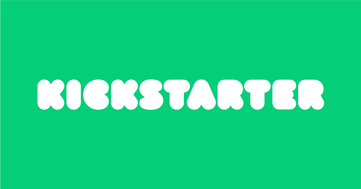
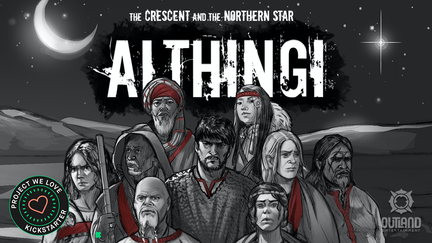

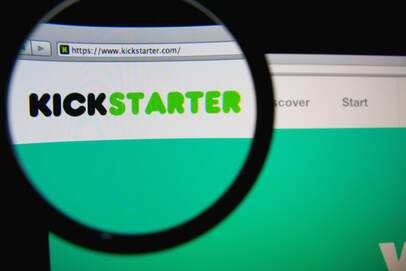



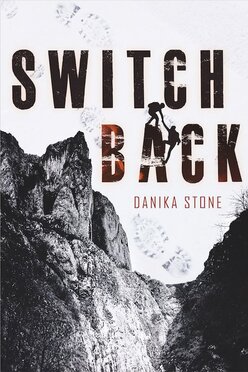


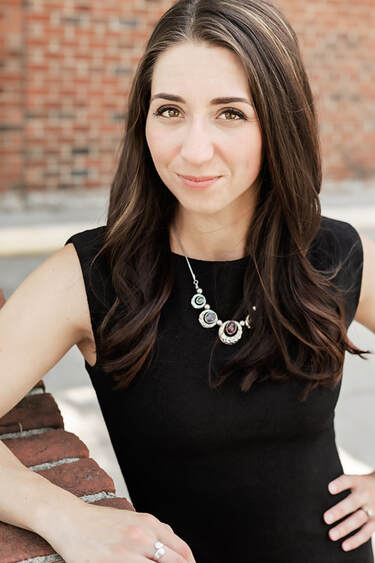
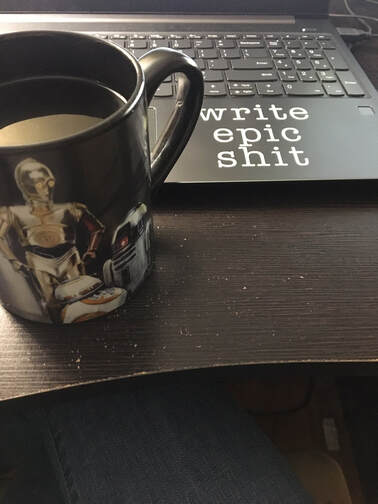
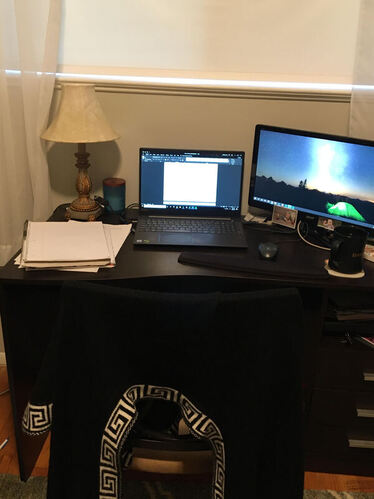
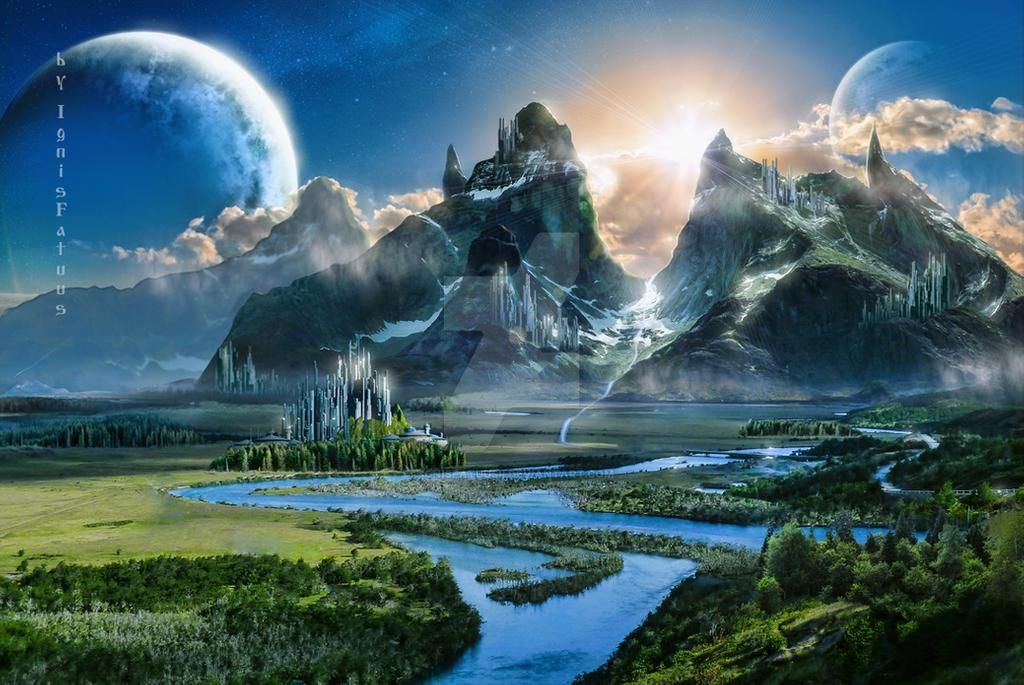



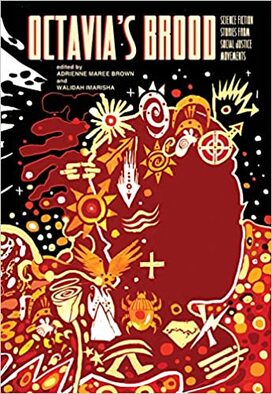

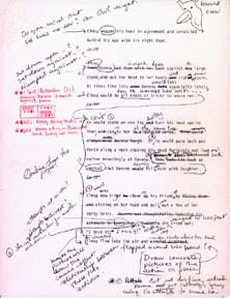
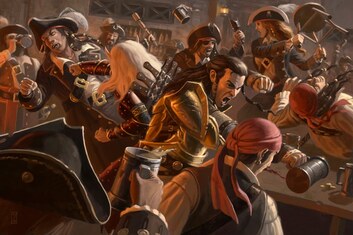
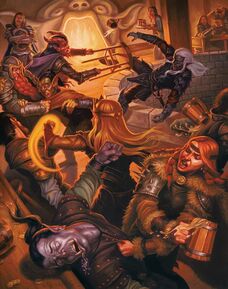
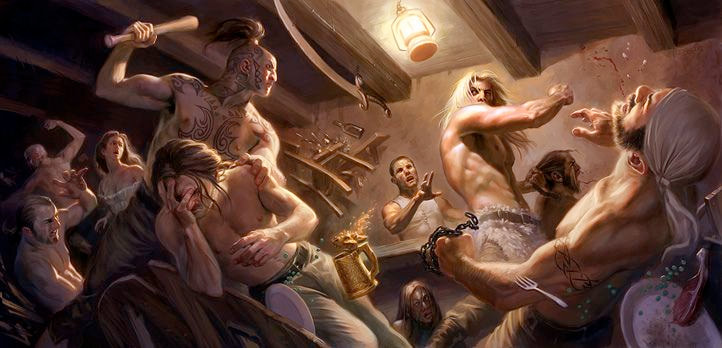
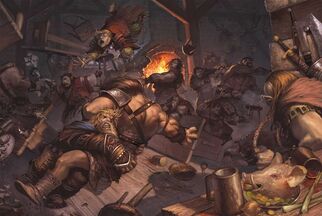

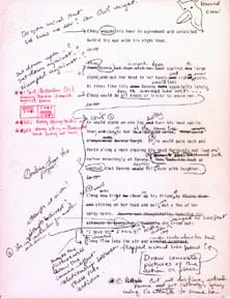



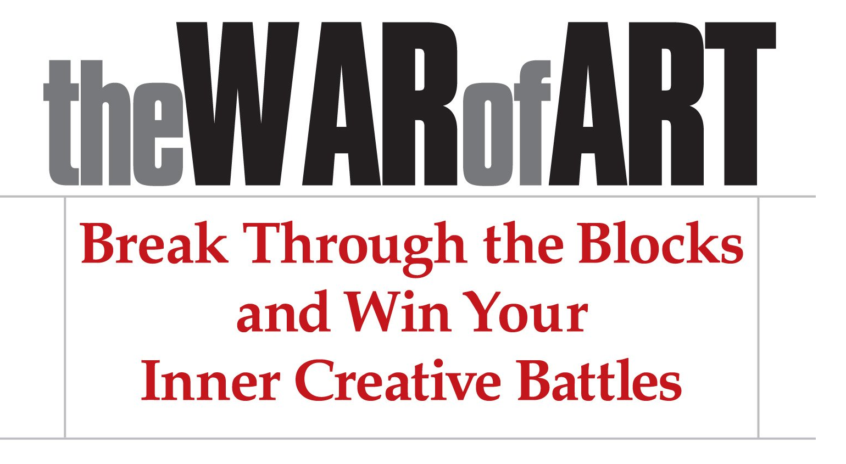
 RSS Feed
RSS Feed
